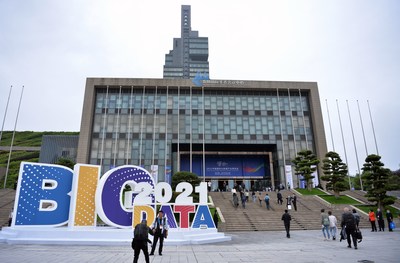ACCRA, GHANA – West African leaders suspended Mali from their regional bloc Sunday over what they said amounted to a coup last week, Ghana’s foreign minister said after an emergency meeting to address the political crisis in Mali.
The 15-nation bloc, the Economic Community of West African States, “is worried about the security implications for West Africa because of the continued insecurity brought about by the political upheavals in that country,” Ghana Foreign Minister Shirley Ayorkor Botchwey said.
At the end of their summit, the heads of state of the ECOWAS member nations demanded that Malian authorities immediately release former transitional President Bah N’Daw and Prime Minister Moctar Ouane, who are being kept under house arrest.
In their statement, the leaders condemned the arrests by Mali’s military, which they said violated mediation steps agreed to last September, a month after a coup led by the same man who has now again taken power in Mali, Col. Assimi Goita.
ECOWAS also called for a new civilian prime minister to be nominated immediately and a new inclusive government to be formed as well as a transition of power leading to February 2022 elections. A monitoring mechanism will be put in place to assure this, they added.
In addition, the statement said, the head of the transition government, the vice president and the prime minister should not under any circumstances be candidates in the planned February 27 presidential election.
ECOWAS urged all international partners, including the African Union, the United Nations and the European Union, to continue to support the successful implementation of the transition in Mali.
The heads of state expressed “strong and deep concerns over the present crisis in Mali, which is coming halfway to the end of the agreed transition period, in the context of the security challenges related to incessant terrorist attacks and the COVID-19 pandemic with its dire socio-economic impacts,” the statement said.
Ghanaian President Nana Akufo-Addo opened the summit Sunday in Accra, saying ECOWAS must “remain resolute in supporting the people of Mali to find a peaceful solution, and restore democracy and stability in the country.”
Mali’s constitutional court on Friday named Goita as the West African nation’s government leader days after he seized power by deposing the president and prime minister and forced their resignations.
Their arrests last Monday by the military took place hours after a new cabinet was named that left out two major military leaders. The court said Friday that Goita would take the responsibilities of the interim president “to lead the transition process to its conclusion.”
The deposed interim president and prime minister had been appointed following the August 2020 coup led by Goita. That coup, against then-President Ibrahim Boubacar Keita, led to mediations by ECOWAS and Nigeria’s former leader, Goodluck Jonathan. The transitional government was set up with Goita as transitional vice president. Elections were to be held in February and March 2022.
After taking power, Goita assured that the elections would still be held, though it wasn’t clear what part the military would play in the government.
The international community, including the African Union, has condemned the power grab. The U.N. Security Council has said the resignations of N’Daw and Ouane were coerced. The U.S. has already pulled its security force support and other bodies, including the EU and France, are threatening sanctions.
Goita has justified his actions by saying there was discord within the transitional government and that he wasn’t consulted, per the transitional charter, when the new cabinet was chosen.
Akufo-Addo said Sunday that ECOWAS was committed “to the peaceful transition in Mali, with the basic goal of restoring democratic government, and working for the stability of Mali and of our region.”
He acknowledged that a May 14 dissolution of the government by the transitional prime minister was worrying and the reappointment of the new, broad-based government on May 24 hours before the arrests “generated considerable tension between various groups, particularly the military, as the former ministers for defense and security were not reappointed.”
Goita attended the summit after being named transitional president by the court. Presidents Umaro Sissoco Embalo of Guinea Bissau, Julius Maada Bio of Sierra Leone, Alassane Ouattara of Ivory Coast, Adama Barrow of The Gambia and Muhammadu Buhari of Nigeria were also in attendance, along with presidents from Burkina Faso, Niger, Togo and Liberia.
The heads of state called for the immediate implementation of all the decisions made Sunday. Jonathan is expected to return to Mali within the week to “engage stakeholders on these decisions.”
Source: Voice of America

